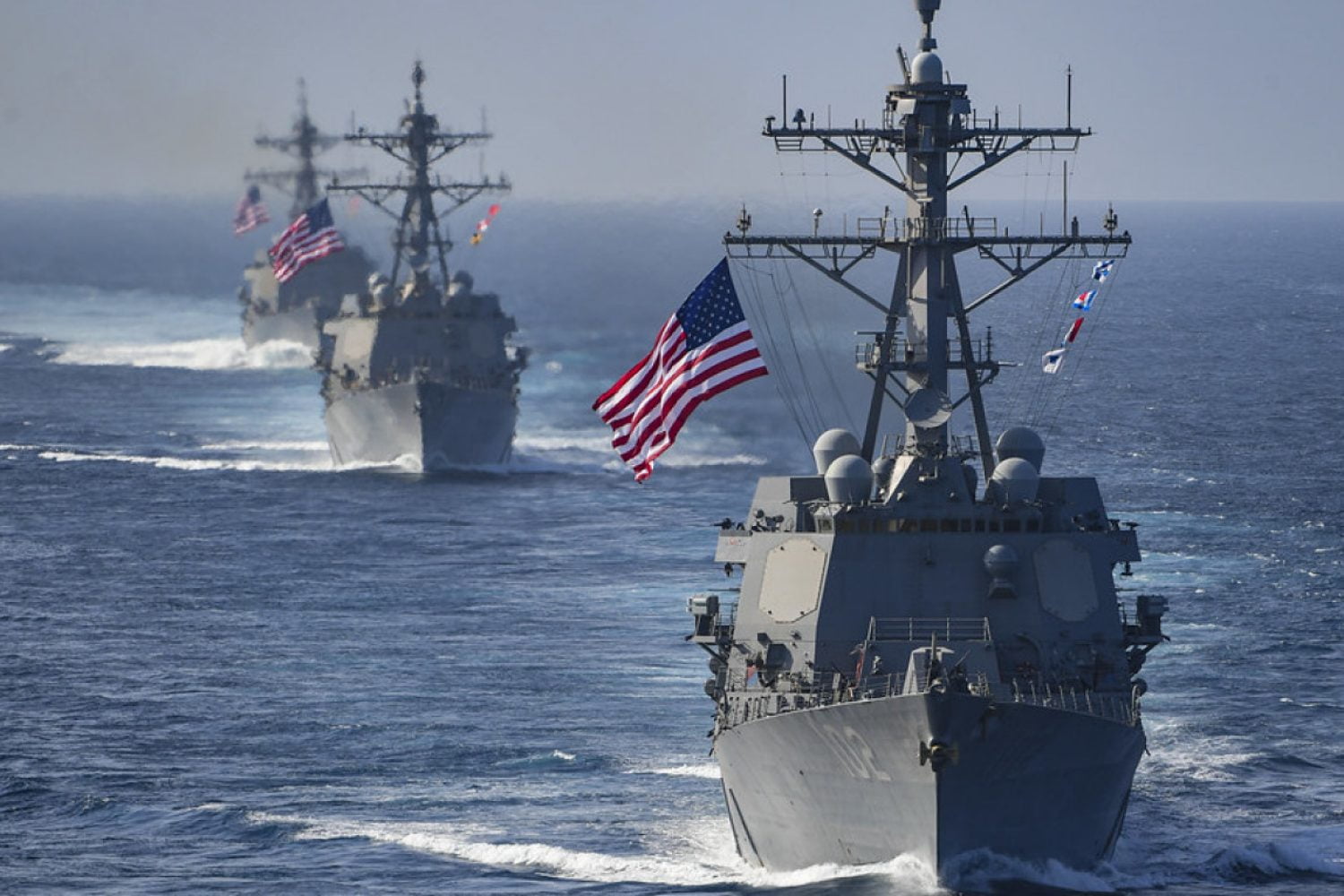It took one Russian invasion of Georgia (2008) and two invasions of Ukraine (2014, 2022), but the Black Sea region has finally gained a prominent place in American national security policy. The region’s emergence was not a smooth, uninterrupted process. As so often happens in American foreign policy, the process unfolded incrementally and unevenly. It was only with the full-scale invasion of Ukraine almost a year ago that the U.S. finally became convinced of two things: that Russia was a grave threat to U.S. interests, and that the Kremlin has chosen the Black Sea region as the place to make its challenge to the U.S.-led, rules-based world order.
Understanding how the Black Sea emerged as a focal point in U.S. foreign policy requires delving into the history of the post-Cold War U.S. approach toward the region. Russia had long been active there, but the U.S. paid little attention to Moscow’s military interventions in Georgia and Moldova – and its political meddling in Ukraine – in the 1990s. In that decade, the American foreign policy elite saw Russia as the most important partner among the former Soviet states and paid scant attention to its post-Soviet neighbors in the Black Sea region. The chief U.S. concerns were Russia’s political stability and the security of its nuclear arsenal. The magnitude of these problems left little room for focusing on problems in Georgia, Moldova, and Ukraine. The U.S. was content to let Russia manage the problems in those countries, even if those problems were partly of Russia’s making.
It was the 2003 Rose Revolution in Georgia and the 2004 Orange Revolution in Ukraine that increased U.S. interest in these countries. In the view of the George W. Bush Administration, if these countries could make the transition to democracy, others in the former Soviet Union might follow. Unfortunately, the legacy of these revolutions is mixed. Neither government proved stable over the long-term, with infighting and creeping authoritarianism bedeviling them. Although the U.S. continued to support Ukraine and Georgia, their Western turn was not enough to spur the creation of a comprehensive American policy or strategy for the region.
Unfortunately for Ukraine and Georgia, although their revolutions failed to gain the enduring attention of American policymakers, they gained the attention of Russia. The Kremlin calls these and other popular revolutions along its borders “Color Revolutions”, and claims they are not popular uprisings that overthrew corrupt, authoritarian regimes, but CIA-assisted coups targeting governments friendly to Russia. In the wake of the Rose and Orange Revolutions, Moscow embarked on a sustained military buildup in the Black Sea region. Unsurprisingly, Russia soon found opportunity to use its new military capability there. In August 2008, four months after NATO had declared that Ukraine and Georgia would become members of NATO but declined to offer then a Membership Action Plan, the Russia-Georgia War made clear how far Moscow was willing to go to advance its interests in the region.
The U.S. response was mixed. While it condemned Russia’s invasion, American policymakers found themselves with a fait accompli – the war was over before the U.S. could even decide what the appropriate response was, much less put it into action. So, the U.S. response was largely limited to the delivery of humanitarian assistance to Georgia. Five months after the invasion, the Obama Administration embarked on its “reset” with Russia. Under the reset, American policymakers preferred to believe the 2008 war was an aberration instead of part of a pattern of Russian behavior. Instead of asking, “Where might Russia push next?”, many in Washington D.C. asked, “How did Georgia miscalculate so badly?”.
Russia’s 2014 seizure of Crimea and fomenting of war in eastern Ukraine put to rest the idea that 2008 was an aberration. U.S. policymakers now began to see Russia as bent on confronting the West. Curiously, the U.S. and its NATO allies reacted to the Russian invasions of Georgia and Ukraine by concluding that Russia posed a threat to the Baltic republics. Never mind that all use of Russian military force along its western border had been in the Black Sea region, NATO decided to deploy four battle groups to the Baltics and Poland. On one hand, this was prudent: the Baltics were NATO allies unable to defend themselves without NATO assistance, so deploying forces there is a prudent deterrent measure. On the other hand, the Black Sea, where Russia had repeatedly used military force, was neglected by comparison.
After February 24th, 2022 the U.S. and NATO finally, some would say belatedly, concluded that Russia posed a serious threat to the Black Sea region. NATO agreed to establish multinational battlegroups – like those in the Baltics and Poland – in Bulgaria, Romania, Slovakia, and Hungary. For its part, the Biden Administration embarked on a fundamental revision of its National Security Strategy (NSS). The previous NSS, written by the Trump Administration in 2017, had mentioned Russia 25 times, Ukraine once, and Georgia once in a 68-page document. The Biden NSS, released after the 2022 Russian invasion of Ukraine, mentioned Russia 71 times, Ukraine 32 times, and Georgia and Moldova once each. The Biden NSS also uses far more blunt language about Russia. Where previous strategies had seen Russia as a disruptive or destabilizing force, the Biden NSS calls it a “profoundly dangerous” state posing “an immediate threat to the free and open international system”.
Congress also got interested in the Black Sea region. In the U.S. national security system, Congress rarely plays a direct role. But when it does, the consequences are often significant and enduring. Indeed, many of the most fundamental reforms of the system were imposed on the Executive Branch by Congress. Examples include the National Security Act of 1947, which created the Central Intelligence Agency (CIA) and the National Security Council (NSC), and the Goldwater-Nichols Act of 1986, which reorganized the Department of Defense and required each administration to produce a National Security Strategy. In the aftermath of Russia’s 2022 invasion of Ukraine, Congress once again inserted itself into the national security policymaking process, by drafting the Black Sea Security Act of 2022 A bill currently circulating in both the House of Representatives and the Senate, entitled the Black Sea Security Act, has the potential to bring needed focus and resources to U.S. policy on the Black Sea region.
If passed into law, which seems likely given its broad bipartisan sponsorship, the bill would require the Biden Administration to strengthen its approach to Black Sea security. Within 120 days of the bill becoming law, it would require the White House to submit to Congress a report that “outlines current United States efforts and policy options toward Black Sea countries and the broader region”. The report would also be required to address 18 specific issues Congress raises in the bill. More importantly, 360 days after the bill’s approval, the White House would be required to submit “an interagency strategy… to increase military assistance and coordination with NATO and the European Union, deepen economic ties, strengthen economic and energy security and enhance security assistance with Black Sea countries, and support efforts to bolster their democratic resilience.”
The new NSS and the potential Black Sea Security Act should be welcome developments for U.S. allies and partners in the Black Sea region. Aside from focusing U.S. attention and resources on the region, the new American approach requires coordination among U.S. government agencies, something that doesn’t often happen spontaneously. A coordinated, interagency approach can ensure that American diplomatic, economic and military power are aligned in pursuit of the same set of objectives. If sustained, U.S. focus on the region could enhance its economic prospects, its security, and its stability.
But the new U.S. approach will not affect each Black Sea littoral country equally. Some, like Turkey, Bulgaria, and Romania are NATO allies. As such, they have been and will remain important in U.S. national security policy. Ukraine is not a NATO ally but is arguably the most important single country for U.S. national security policy now, due to its fight to reverse Russia’s aggression against it. This leaves Georgia. As neither a NATO ally nor a country fighting an active Russian invasion, Georgia’s role in U.S. policy toward the region depends on three things.
First, Tbilisi must position itself as a provider of security, as it did so successfully during its long partnership with the U.S. in Iraq and Afghanistan. With those missions at an end, a new U.S.-Georgian military partnership is something both governments should be exploring. Next, Georgia should emphasize its role as a Black Sea country by prioritizing its partnerships with other countries in the region. This is especially true of Ukraine, Georgia’s partner in the NATO accession process. The pointless spats between the Georgian and Ukrainian governments, seen in the West as instigated by Tbilisi, do significant damage to Georgia’s reputation.
Finally, Georgia must be seen as making progress in building democracy. It is no accident that one of the key focus areas of the Black Sea Security Act is building democratic resilience. The new Biden Administration NSS also has a strong focus on democratic development: whereas the Trump NSS mentioned democracy six times, the Biden strategy mentions it 38 times. Georgia’s political situation does not position it well in this area. Indeed, Senator Jeanne Shaheen, a sponsor of the Black Sea Security Act, has recently mooted the idea of withholding aid to Georgia and has said “we need to think about whether it’s time to rethink our strategy on Georgia.”
The new National Security Strategy and the Black Sea Security Act offer regional countries an opportunity to increase the level of attention and assistance they receive from the United States. Whether Georgia will be able to avail itself of this opportunity remains to be seen.
The opinions expressed here are the author’s and do not necessarily reflect the policy or position of the U.S. Army War College, the Army, or the Department of Defense.
Colonel (Retired) Robert E. Hamilton, Ph.D. – an Associate Professor of Eurasian Studies at the U.S. Army War College and a Black Sea Fellow at the Foreign Policy Research Institute.




